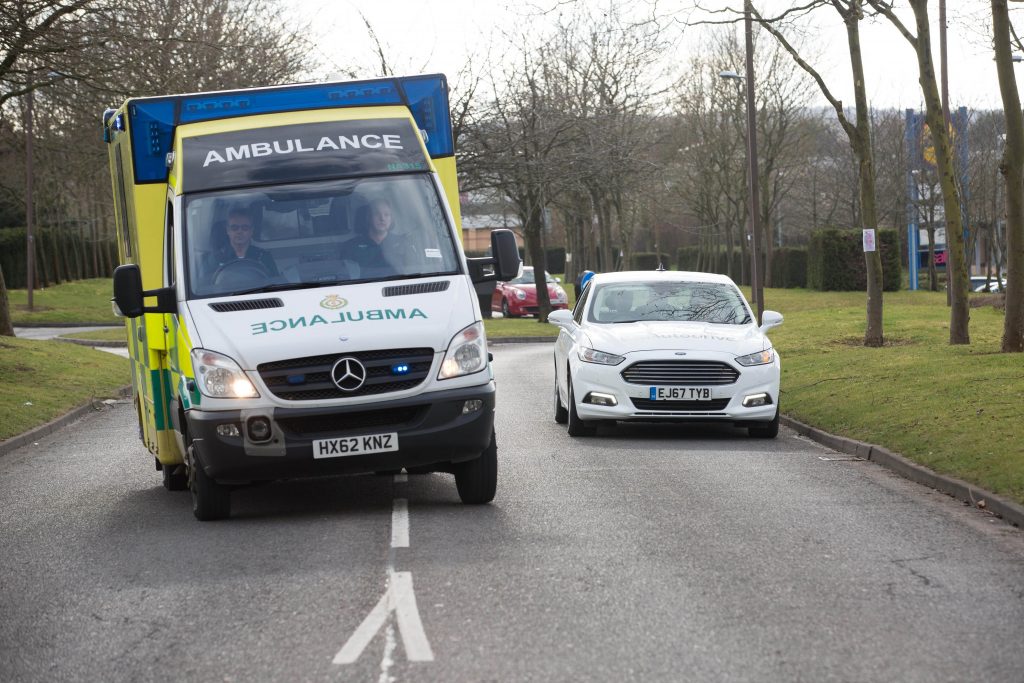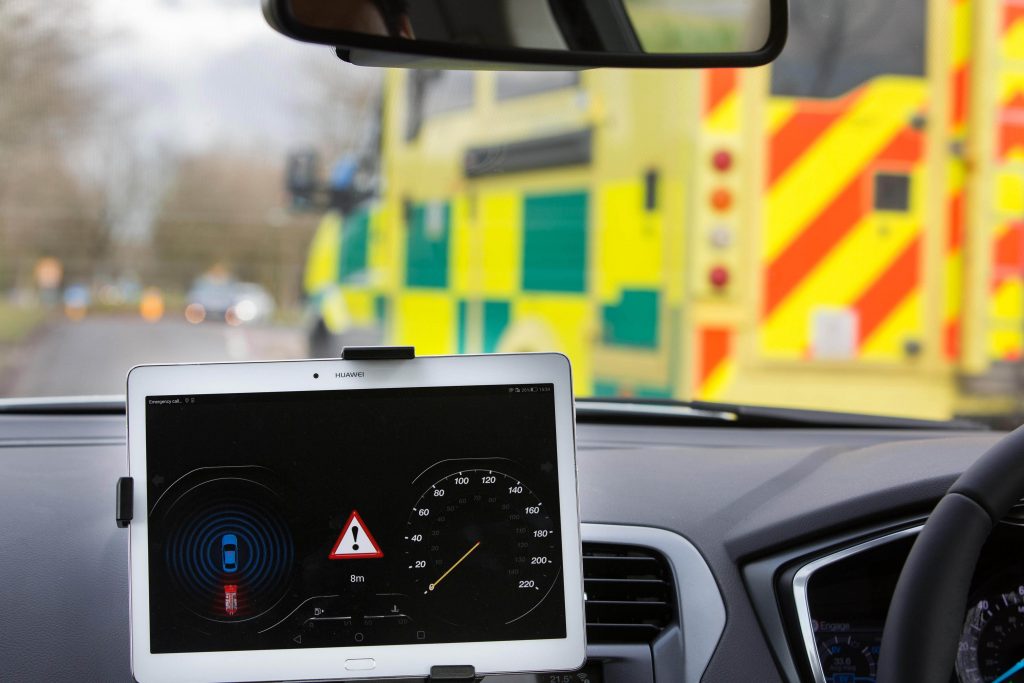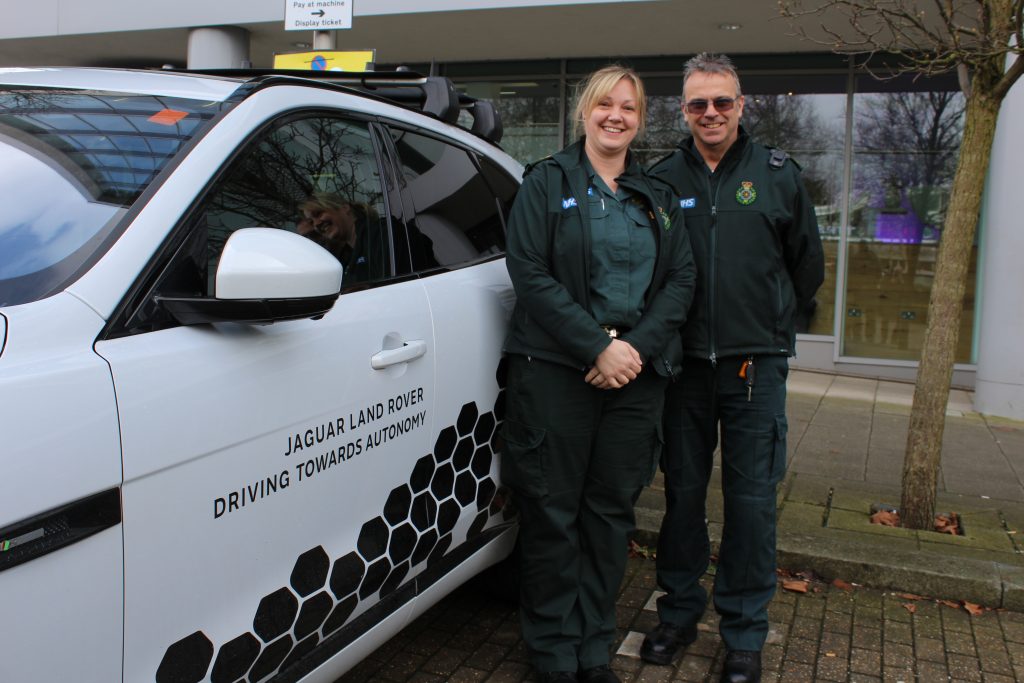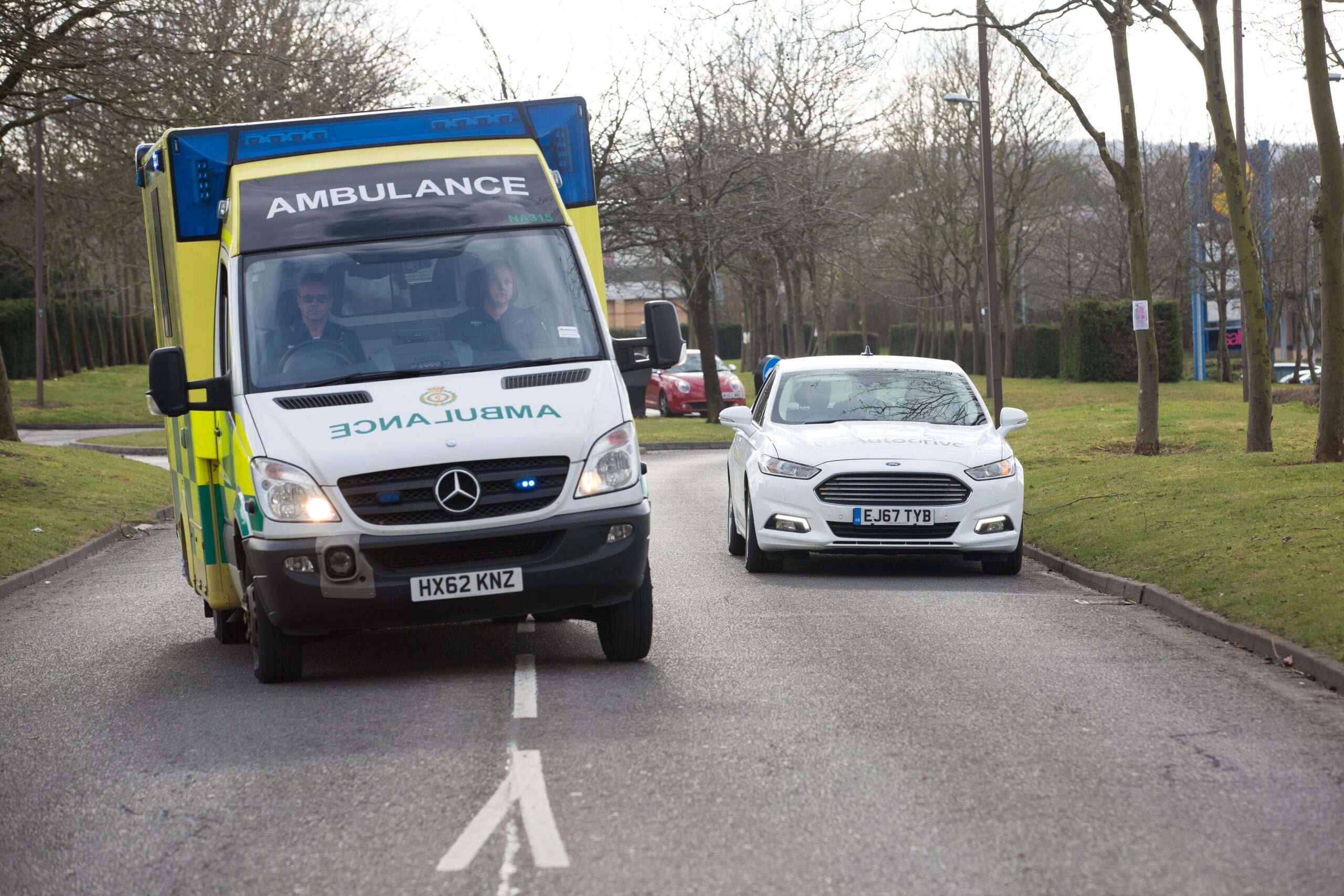South Central Ambulance Service NHS Foundation Trust (SCAS) has taken part in a ground-breaking UK trial of connected and autonomous vehicle technology in Milton Keynes.

SCAS was initially one of two emergency services approached by the UK Autodrive project team. The suggestions, challenges and commitment from Mark Begley, Head of Operations, and Steve Winfield, Clinical Operations Manager, for Milton Keynes and Aylesbury Vale, along with the local ambulance service team, during the planning stages made SCAS the obvious emergency service partner of choice for the Milton Keynes trial.
The project saw SCAS team up with Ford, Jaguar Land Rover and Tata Motors European Technical Centre to demonstrate a range of the latest vehicle technology including self-driving, self-parking and two connected car safety features.
The first safety feature involved an Emergency Vehicle Warning (EVW) system, which alerts drivers when an emergency vehicle is approaching and also indicates which direction it is coming from. The EVW sends a signal directly from the emergency vehicle (ambulance, fire engine, police vehicle) to nearby connected cars. The driver is then informed that the emergency vehicle is approaching and advised to make way for it.

The second trial demonstrated an Electronic Emergency Brake Light (EBBL) feature which gives a warning when another connected car further up the road brakes heavily – potentially giving drivers several additional seconds to avoid a possible collision.

Paramedic Team Leader, Lisa Pringle, who along with colleague Nigel Mason, Paramedic, took part in the trials over a five day period between 14-23 March in central Milton Keynes, said:
“Some people do tend to panic a bit when they see or hear emergency vehicles approaching. As a result their vehicles can become very unpredictable and we have to adjust our driving to manage that risk. The system we’re helping trial tells the driver not just how far away we are, but what direction we’re coming from. This helps them plan ahead even before they can see us and sometimes, even hear us coming.”
Nigel added:
“As well as helping us get to emergency incidents that little bit more quickly, this technology also has significant benefits when we’re then transporting a seriously ill or injured patient to hospital on blue lights. If that journey can be made smoother for the patient, then this also potentially helps improve their chances of making a good recovery.”
Philip Astle, Chief Operating Officer at SCAS, added:
“We were delighted to have been approached by the UK Autodrive project team. As well as being an innovative ambulance trust, we have a strong commitment and focus at SCAS on safety – for our patients, for our staff and for the communities we serve. By being involved in trials of such cutting edge vehicle technology, we can provide valuable input from our frontline staff to the engineers, researchers and car manufacturers that will make our roads safer places for all users in the future.”
Ends
For further information please contact the Communications Team on 07623 957895 or email communications@scas.nhs.uk
Notes to Editors
About UK Autodrive
UK Autodrive is the largest of three UK consortia launched to support the introduction of self-driving vehicles into the UK. UK Autodrive brings together leading technology and automotive busineses, forward-thinking local authorities and academic institutions to deliver a major three-year UK trial of autonomous and connected vehicle technologies taking place in Milton Keynes and Coventry. UK Autodrive is jointly funded by government and industry. The competition was delivered by the UK’s innovation agency, Innovate UK. For further information, see www.ukautodrive.com
Road Safety
All of the cars being used in the UK Autodrive project have been rigorously tested before being introduced onto public roads. Robust safety measures have been developed and refined as integral parts of the programme. In addition, there will be a trained operator at the wheel – ready to take control of the vehicle if necessary
- More than 1.25 million people die each year worldwide as a result of road traffic collisions (90% of which often quoted caused by human error)
- Road traffic injuries are the leading cause of death among people aged between 15 and 29 years
- 90% of the world’s fatalities on the roads occur in low- and middle-income countries, even though these countries have approximately 54% of the world’s vehicles
- Nearly half of those dying on the world’s roads are ‘vulnerable road users’ – pedestrians, cyclists and motorcyclists
- Road traffic collisions cost most countries 3% of their gross domestic product
- Without sustained action, road traffic crashes are predicted to become the seventh leading cause of death by 2030
Source: https://www.who.int/mediacentre/factsheets/fs358/en/

